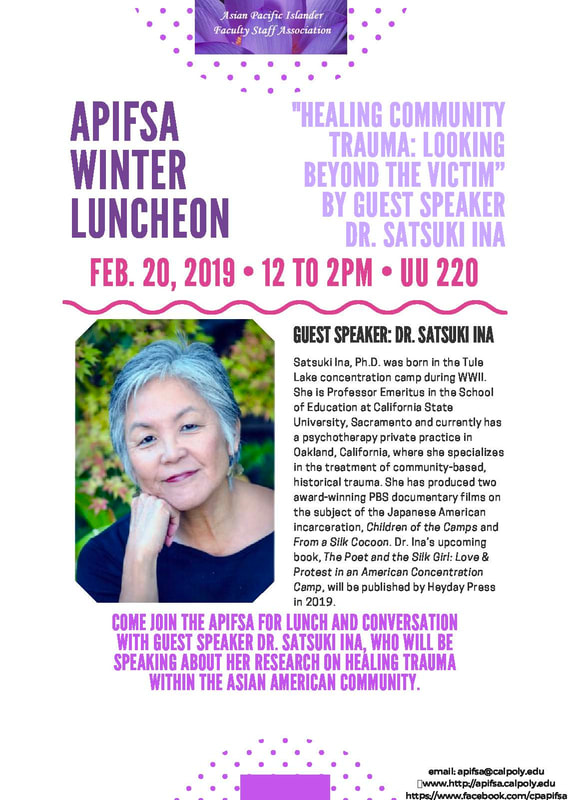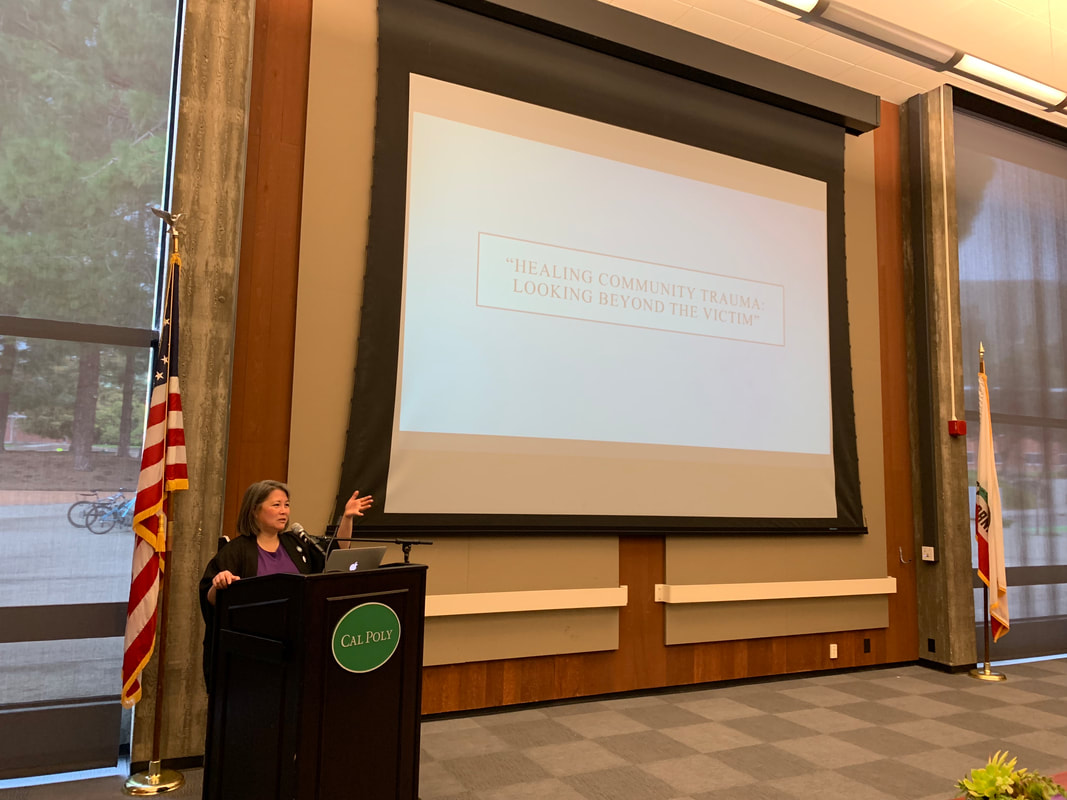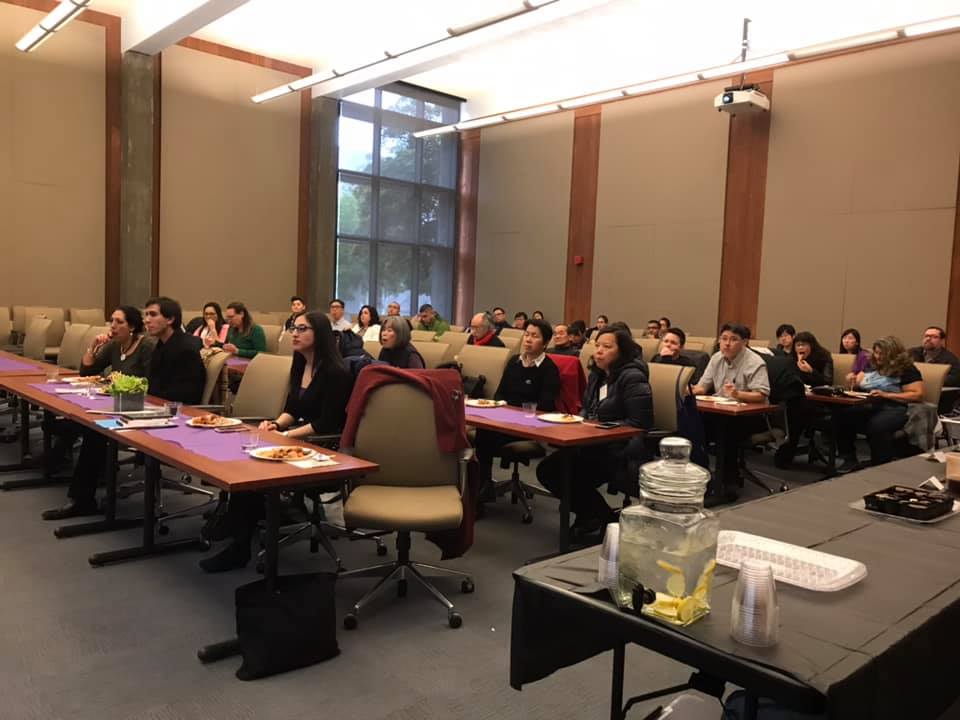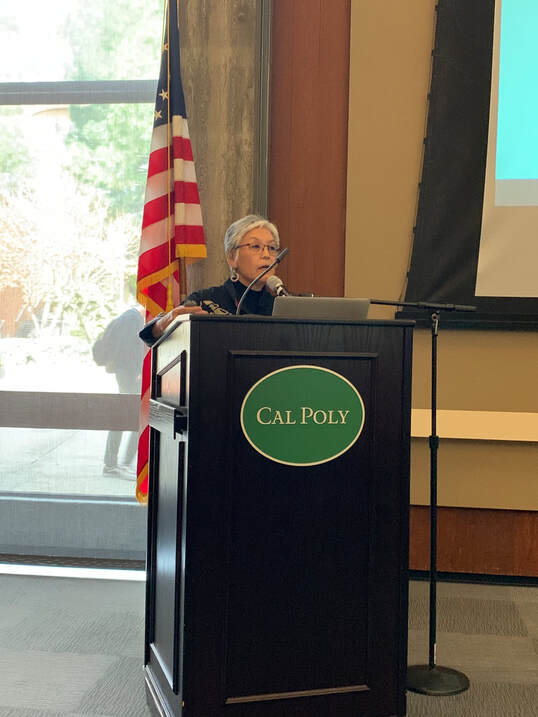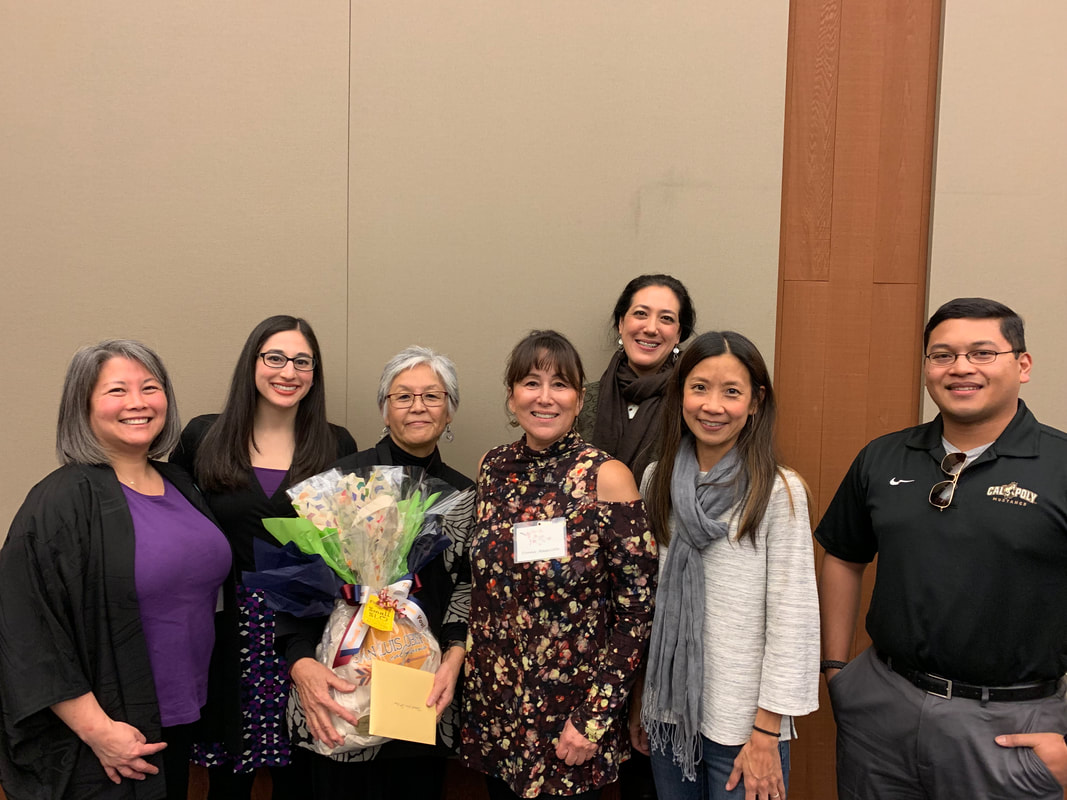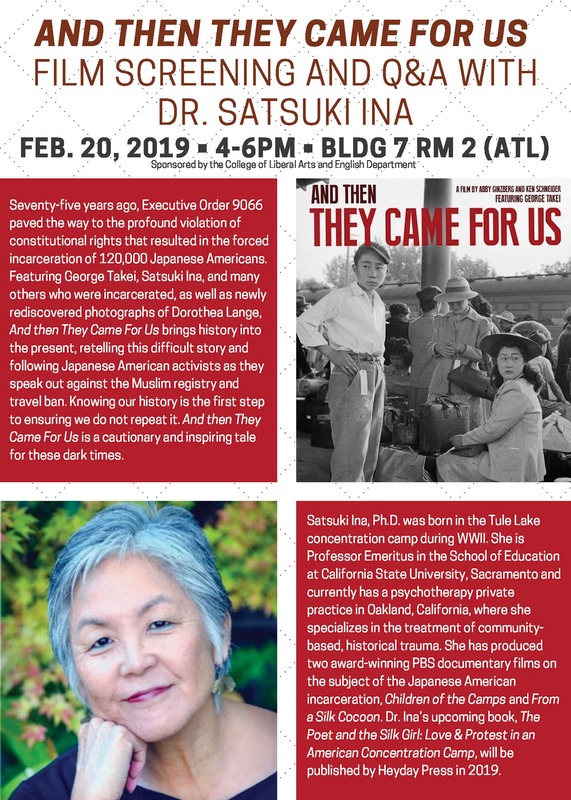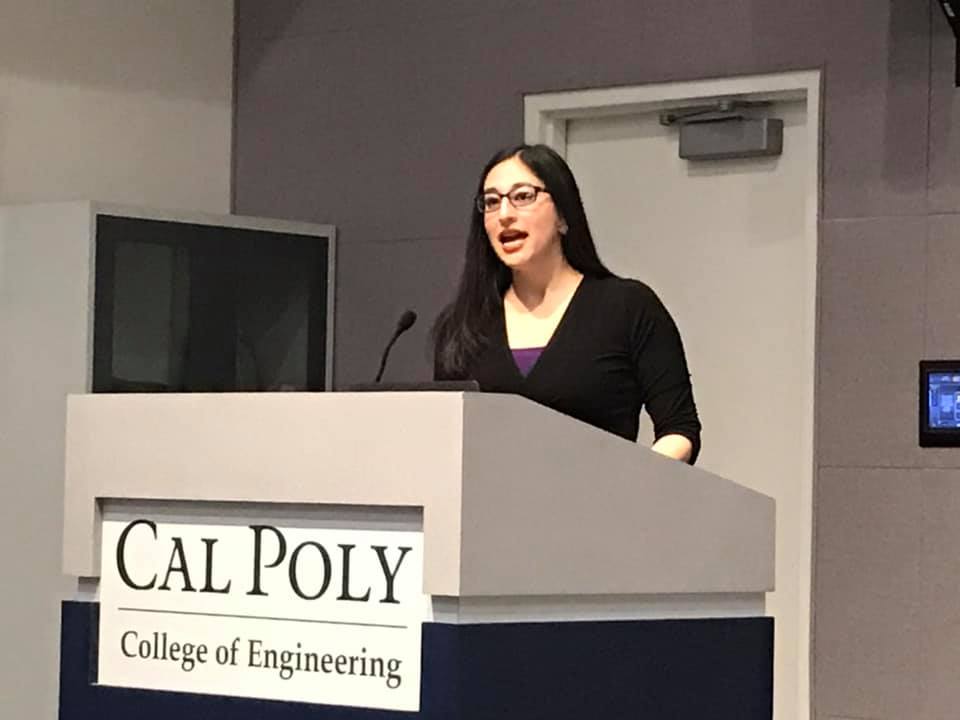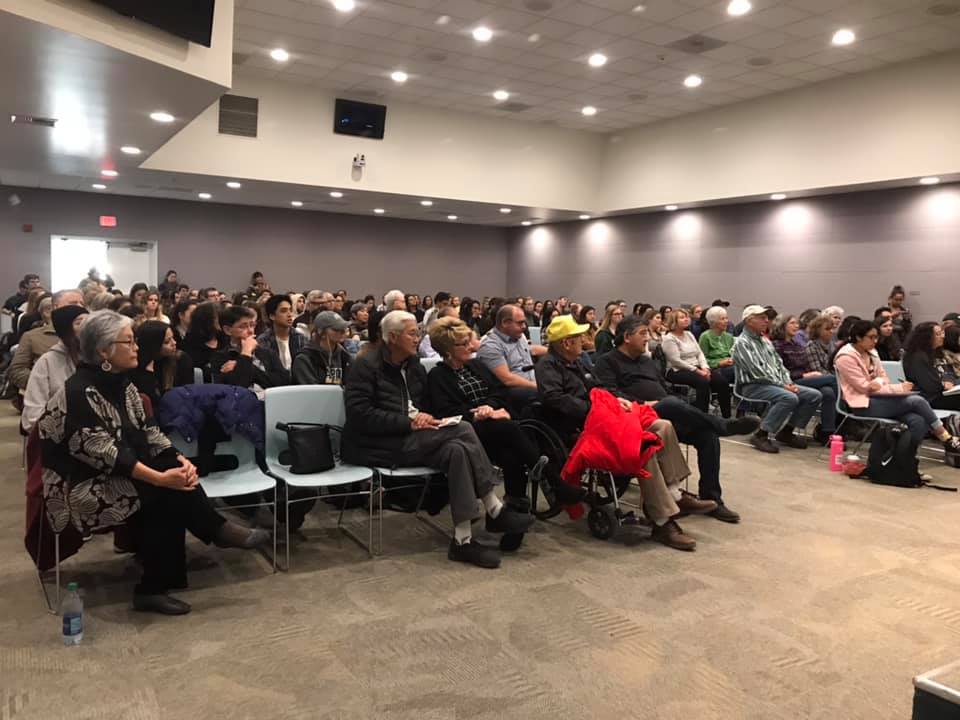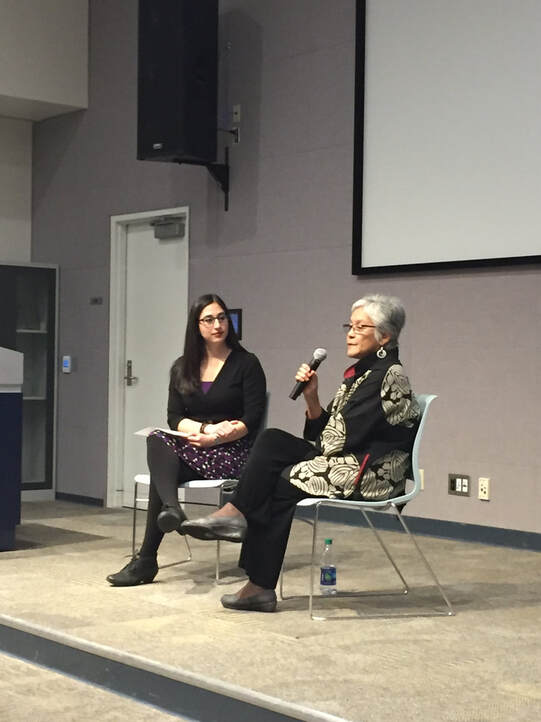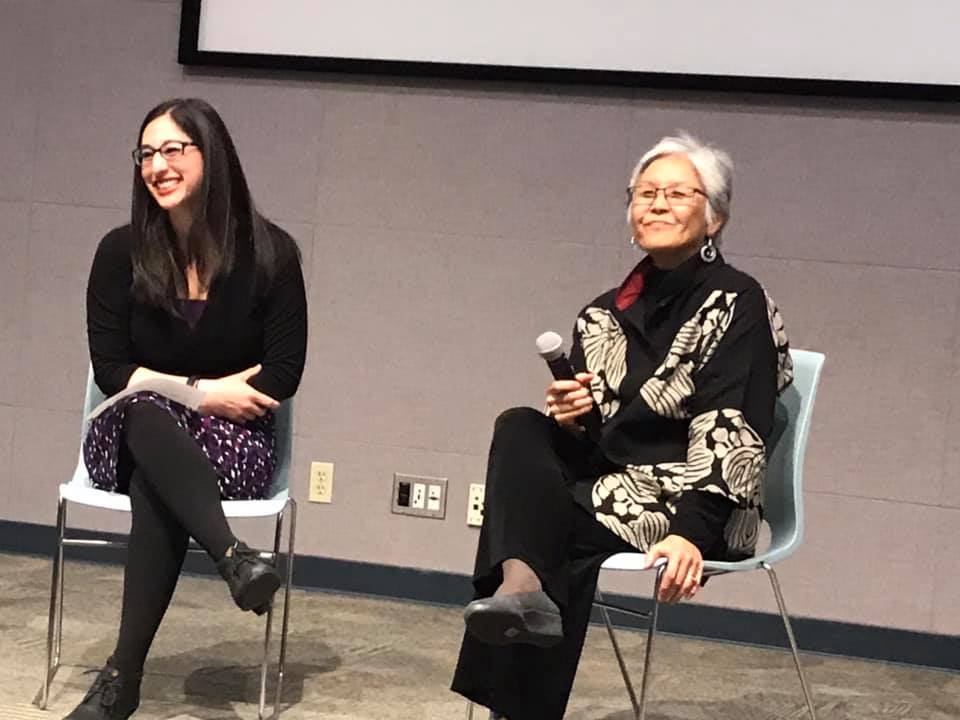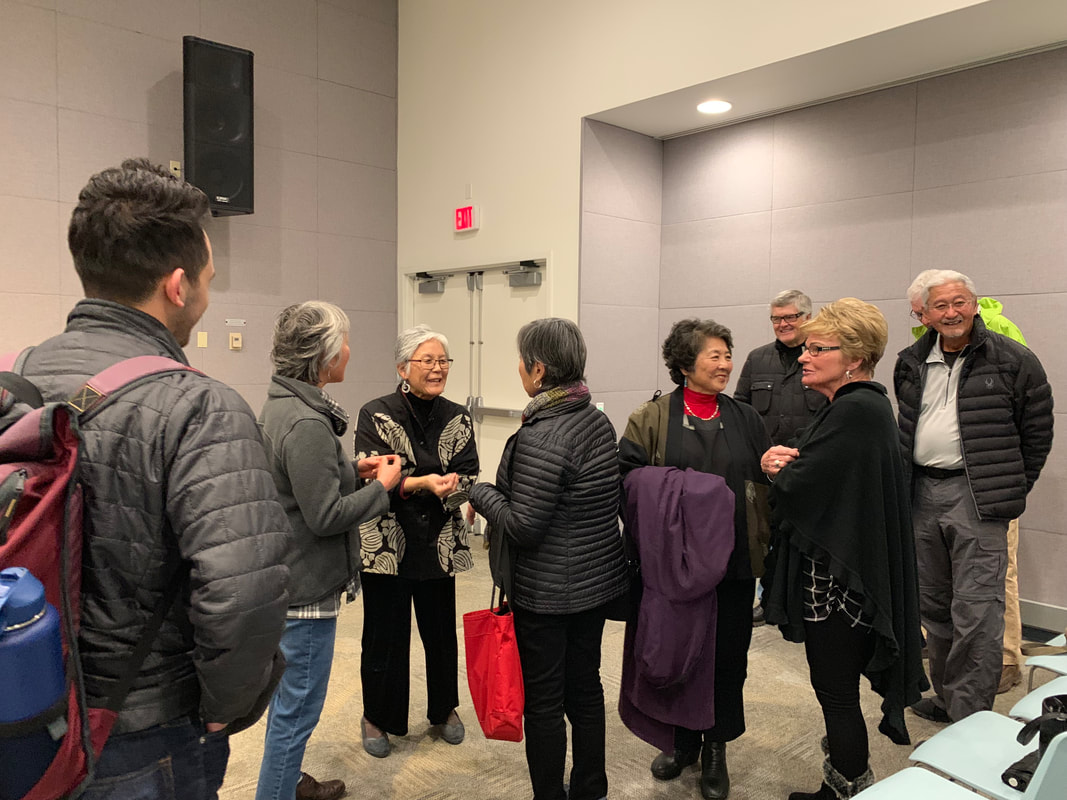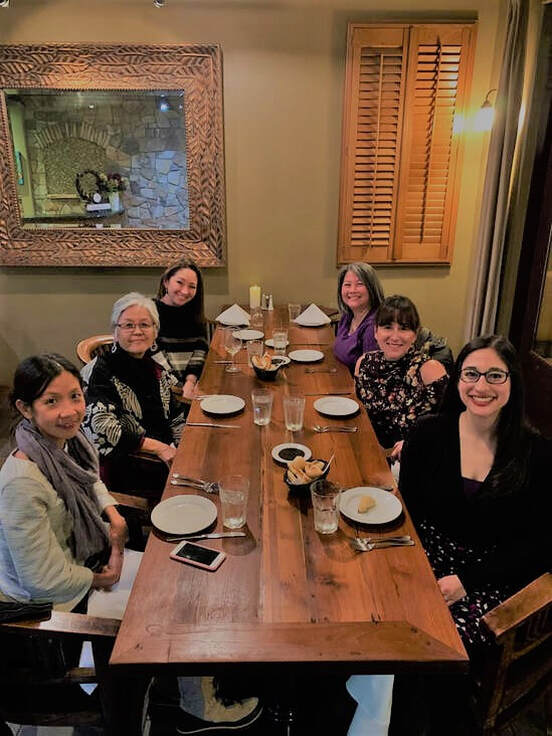|
After months of planning and organizing, this week I hosted a day of programming commemorating Japanese American internment during World War II. Tuesday, February 19th marked the 77th anniversary of President Roosevelt's signing of Executive Order 9066, which authorized the forced incarceration of 120,000 people of Japanese ancestry. In honor of this Day of Remembrance, I organized a film screening of a 2017 film documentary about the internment experience, And Then They Came For Us (directed by Abby Ginzberg), on Wednesday, February 20th. I also invited to campus one of the people featured in the film, Dr. Satsuki Ina, who was born in the Tule Lake incarceration camp and is currently an activist and professor emeritus from California State University, Sacramento. The first event was a luncheon hosted by the Asian Pacific Islander Faculty and Staff Association (APIFSA), during which Satsuki gave a moving talk about intergenerational trauma caused by Japanese American internment, which was titled "Healing Community Trauma: Looking Beyond the Victim." As a former internee who was personally affected by internment and as a psychotherapist who specializes in the treatment of community-based historical trauma, Satsuki provided an expert perspective on this critical topic. Her talk, which took place as APIFSA members enjoyed delicious food catered by Oki Momo Asian Grill, inspired robust discussion during the Q&A session that followed. Here is a flyer of the event, followed by some photos taken during the event. The second event was a public film screening of the documentary film And Then They Came For Us, which attracted over 200 audience members. This film offers a moving account of Japanese American internment and brings the history of this egregious violation of civil liberties into the present day by making critical comparisons between the internment of Japanese Americans during World War II and the abuses of Muslim Americans during the War on Terror. After the film screening, I spoke with Satsuki about the film and its relevance for today's political climate. Then I opened up the conversation to the audience, several of whom were former internees and many of whom knew family or friends who had been incarcerated. During Q&A, Satsuki shared about her present-day activist efforts to protest the detention of migrant children at the border. The conversation was so rich that several people stayed to talk with Satsuki long after the official end of the event. Here is a flyer of the film screening, followed by some photos taken during the event. After a long day of programming, Satsuki and I headed to dinner with a few members of the APIFSA, where we enjoyed continuing the conversation over a delicious meal. Looking back over today's events, I can't help but feel inspired and moved. I am so grateful to have the support of the Cal Poly community, particularly the College of Liberal Arts, the English Department, the APIFSA, and the Kennedy Library, to put on programs that enrich our knowledge of the United States' racial history and that represent the experiences of underrepresented communities. I will never forget Satsuki's visit to our campus this week, which has helped stimulate important conversations within our community about the long history of violent detention in the United States and its continued legacy today.
0 Comments
Your comment will be posted after it is approved.
Leave a Reply. |
AboutCheck out this page for periodic updates about my research, teaching, and community work. |
